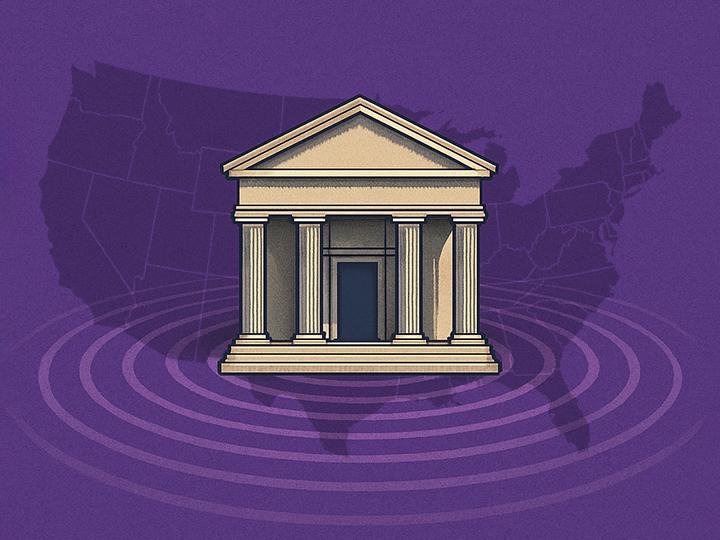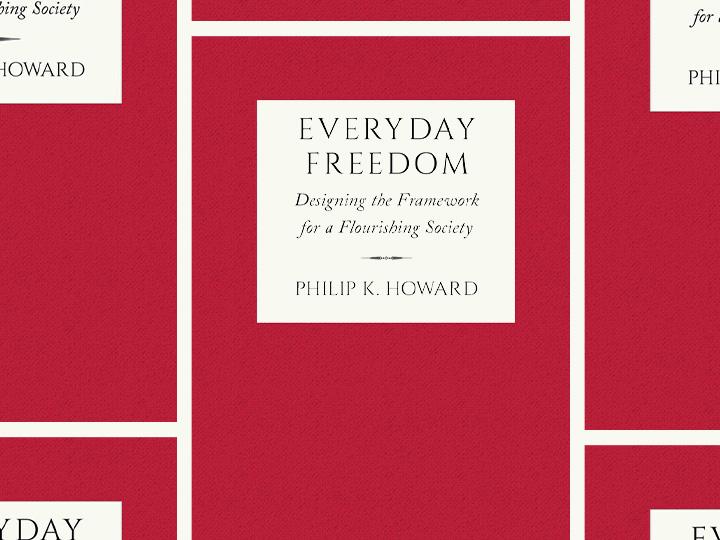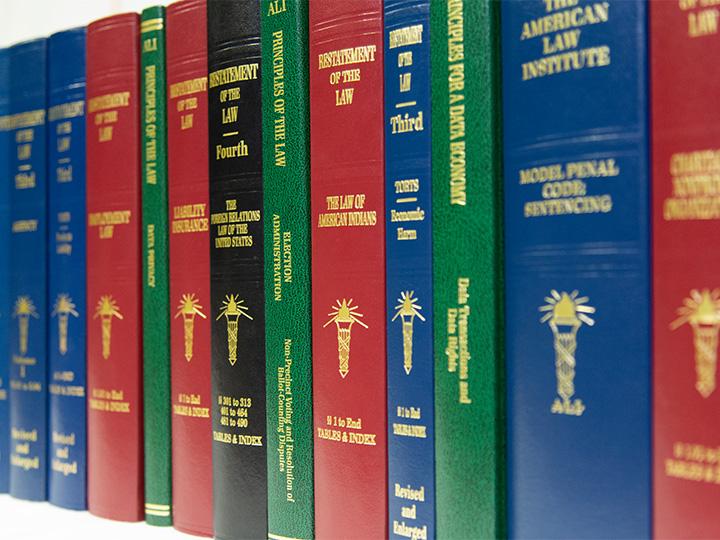This episode features a previously unaired portion of the Season One episode “Long Road to Hard Truth: The 100 Year Mission to Create the National Museum of African American History and Culture.” On that episode, Judge Paul Friedman of the U.S. District Court for the District of Columbia sat down with Judge Robert Wilkins of the U.S. Court of Appeals for the District of Columbia Circuit to talk about his book of the same title. During the recording of that episode, Judge Wilkins mentioned a personal experience that he went through in the 1990s, a lawsuit that he filed against the Maryland State Police. This lawsuit ended up being a game changer. Judge Friedman asked Judge Wilkins to share his story, which we now present in this standalone episode.
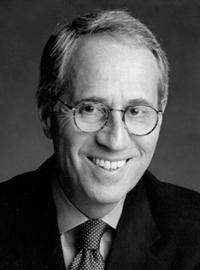
Paul L. Friedman
Judge Paul L. Friedman was appointed United States District Judge in August 1994. He graduated from Cornell University in 1965 and received a J.D. from the School of Law of the State University of New York at Buffalo in 1968. Following law school, Judge Friedman clerked for Judge Aubrey E. Robinson, Jr., of the U.S. District Court for the District of Columbia and for Judge Roger Robb of the U.S. Court of Appeals for the District of Columbia Circuit.
He served as an Assistant United States Attorney for the District of Columbia from 1970 to 1974, and as an Assistant to the Solicitor General of the United States from 1974 to 1976. Judge Friedman practiced law as an associate and partner with White & Case from 1976 until 1994. He served as President of the District of Columbia Bar from 1986 to 1987, and as Associate Independent Counsel for the Iran-Contra Investigation from 1987 to 1988. He is the Secretary of The American Law Institute and a member of its Council.
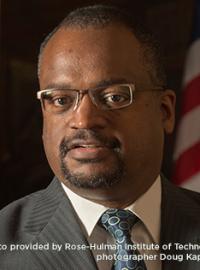
Robert L. Wilkins
Judge Wilkins was appointed to the United States Court of Appeals for the District of Columbia Circuit on January 15, 2014. A native of Muncie Indiana, he obtained a B.S. in Chemical Engineering from Rose-Hulman Institute of Technology in 1986 and a J.D. from Harvard Law School in 1989.
Following law school, Judge Wilkins served as a law clerk to the Honorable Earl B. Gilliam of the United States District Court for the Southern District of California. In 1990, he joined the Public Defender Service for the District of Columbia, where he served first as a staff attorney in the trial and appellate divisions and later for several years as Special Litigation Chief. In 2002, he joined the law firm of Venable LLP as a partner, handling white-collar defense, intellectual property and complex civil litigation matters. During his tenure with the Public Defender Service and in private practice, Judge Wilkins served as the lead plaintiff in Wilkins, et al. v. State of Maryland, a landmark civil rights lawsuit that inspired nationwide legislative and executive reform of police stop-and-search practices and the collection of data regarding those practices. Judge Wilkins also played a key role in the establishment of the Smithsonian National Museum of African American History and Culture (opened in September 2016 on the National Mall), serving as the Chairman of the Site and Building Committee of the Presidential Commission whose work led to the Congressional authorization of the museum and the selection of its location. As a practicing lawyer, he was named one of the “40 under 40 most successful young litigators in America” by the National Law Journal (2002) and one of the “90 Greatest Washington Lawyers of the Last 30 Years” by the Legal Times (2008). On December 27, 2010, Judge Wilkins was appointed United States District Judge for the District of Columbia, where he served until his appointment to the D.C. Circuit.
Additional information on the case Wilkins v. Maryland St. Police
Disclaimer: The views and opinions expressed on Reasonably Speaking are those of the speakers and do not necessarily reflect the policy or position of The American Law Institute or the speakers’ organizations. The content presented in this broadcast is for informational purposes only and should not be considered legal advice. Please be advised that episodes of Reasonably Speaking, explore complex and often sensitive legal topics and may contain mature content.
Introduction: Thank you for joining us on this special edition of Reasonably Speaking. This episode features a previously un-aired portion of the Season One episode Long Road to Hard Truth: The 100 Year Mission to Create the National Museum of African American History and Culture. On that episode, Judge Paul Friedman of the United States District Court for the District of Columbia sat down with Judge Robert Wilkins of the United States Court of Appeals for the District of Columbia Circuit to talk about his book of the same title. This full episode is still available in the Season One archive. During the recording of that episode, as Judge Wilkins was talking about his life and career in the 1990s, he mentioned to Judge Friedman a personal experience that he was going through at the time -- a lawsuit that he had against the Maryland State Police. This lawsuit ending up being a game changer. Judge Friedman asked Judge Wilkins to share his story. We are now sharing his story as a standalone episode.
Let’s now go to the original interview. The first voice you’ll hear is Judge Wilkins talking about his time with the DC Public Defender Service.
Robert Wilkins: There were a lot of things going on in my life there in the mid 90's that caused me to gravitate toward this project. I was a public defender here in Washington with the DC Public Defender Service and that was ... while I loved the job it was a really grueling experience, often times just mentally taxing and just depressing experience. A lot of my clients ... by definition they were all poor, so many of them ... they'd grown up with mental, emotional, physical, sexual abuse, they were effected by drug abuse within their families, etcetera, they were just caught in this cycle and I felt like at times I was on a treadmill.
Paul Friedman: Like a lot of public defenders, I guess if you look at the statistics, an awful lot of your clients end up getting convicted and going to jail or to prison or you decide that there's no real defense and you plea. So you're seeing a lot of people your representing wind up being imprisoned.
Wilkins: Yes, definitely. It's just really a mentally exhausting kind of a job.
Friedman: And knowing the case loads that they still carry in the federal public defender and the public defender service of the District of Columbia, it's also physically exhausting. You've got probably more clients than you can handle and you've got a lot of pressures from people like you and me, in other words, judges.
Wilkins: Yes. Yes. We had a lot of pressures on all sides, so there were many nights I was at the DC jail still at midnight trying to talk to my client about what was going to happen in court, or prepare them for trial, or to prepare to plead guilty, or to get ready for a sentencing, or whatever it was. So, I was kind of physically and mentally tired and then I also had been involved at this time for several years with this lawsuit I had against the Maryland State Police.
Friedman: I know this is a digression, but I am very familiar with this story, but would you mind just briefly telling our listeners about it?
Wilkins: Sure. In May of 1992 I was with my uncle and his wife and his son, my first cousin, we rented a car and we drove from DC to Chicago for my grandfather's funeral. On the way home, it was a weekday about 5:00 in the morning, we had driven all night from Chicago, we were stopped by the Maryland State Police in Cumberland, Maryland on the interstate. My cousin was driving, I was in the front seat, my uncle and his wife were in the back. Instead of just writing my cousin a ticket for going 60 in what was a 40 mile per hour zone on the interstate, which was what the trooper said that he had paced the car doing, he tried to get my cousin to sign a consent to search for ... to allow him to search our vehicle. My cousin wouldn't sign the form when he had him kind of by himself ... when he had him step outside the car and he was trying to get him to sign it.
Wilkins: When I got out of the car and my uncle got out of the car to ask what was going on and I heard that this was what was happening, I said, "Sir, I'm an attorney, in fact I'm a public defender. I understand what our rights are and what your rights are. We don't want to sign the form and we'd just like for you to write the ticket and let us go, or a warning, whatever it is you want to do."
Wilkins: He said, "If you've got nothing to hide then what's your problem?"
Wilkins: I explained to him that there was the matter of the fourth amendment was the problem because we had the right to be free of unreasonable searches and seizures and we just wanted to exercise our rights. His response to that was, "nobody ever objects".
Wilkins: I said, "I can't speak for others, but we do", at that point he said, "if you're not gonna sign this form you're gonna have to wait here until a drug sniffing dog can be brought to the scene." Having just written a brief on the issue, I explained to him that he shouldn't do that because there was a 1985 US Supreme Court case called United States versus Sharp and it stood for the proposition that he could not detain us for longer than it would take to write a ticket unless he had at least reasonable articulable suspicion that we were trafficking drugs and he no basis to have such suspicion."
Wilkins: He was not impressed with my citation of precedent and so he said, "Never heard anything about that case, but this is routine, so if you're not gonna sign this form you're gonna have to wait." Long story short, we had to wait and at some point a Sheriff's deputy shows up with a German Shepard and we have to get out of the car, stand on the side of the road while the German Shepard is led around the car and it jumps on the hood, it jumps on the trunk and sniffs down in the area where the windshield wipers are and all around the tires and hubcaps and the door handles and everything else. It doesn't alert, which we're thankful for, not because we had drugs, but this was a rental car.
Friedman: Right, you didn't know who had it before.
Wilkins: Yeah, we don't know who had had the car before or whether they had done something or smoked something, or whether there was residue. Dogs can also have false positives, but the dog didn't alert and we were able to go. In the scheme of things it was a small matter you can say. Yeah, we were detained about 50, 55 minutes, the trooper was actually very professional and courteous. He was never nasty and we never felt like we were in danger from him. One of the troopers who showed up for back up was kind of snide with us, but the indignity of standing there in the rain while this German Shepard was going around our car and these people are driving past and looking at us and looking at the flashing police lights and looking at the dog and putting two and two together and getting five, which is, these people must have done something bad, when we hadn't. We were just coming home from a funeral.
Wilkins: I think that what added insult to injury, Paul, was that this happened on May the 8th of 1992, I don't know if you recall what happened on April the 29th of 1992, but that was the day that the jury acquitted all the officers in Simi Valley in Rodney King trial.
Friedman: Right, yes.
Wilkins: So, Los Angeles was literally still smoldering as we were smoldering there on the side of the road because of what had happened. We had spent a good part of that 12 hour drive to Chicago talking about, Los Angeles is up in flames, does the criminal justice system work, does the court system respect the rights of African American? My uncle was talking about various times he had been beaten up by the police as a young man living in the Bay area and various things. I was probably the one who was defending the system.
Friedman: I can see you doing that.
Wilkins: And then coming back, here I am with my fancy Harvard law degree and I can even cite by name and date the US Supreme Court case and all of that and it means nothing.
Friedman: It still didn't matter 'cause you were black.
Wilkins: Meant nothing. That was almost too much for me to bear.
Friedman: So you brought a law suit.
Wilkins: Yes, I wrote to the ACLU and they agreed to represent me in what was then called Hogan and Hartson, now Hogan and Lovells took the case on pro bono and we sued the Maryland State Police and we learned in discovery very early that a directive had been sent from headquarters to the Cumberland Maryland barracks that said in substance, African Americans are bringing crack cocaine into Cumberland, Maryland, they're traveling early in the morning and late at night, they like to use rental cars with Virginia plates. You need to stop them and search them and consider them armed and dangerous. Now, at one point when I was pleading with the officer to let us go I said, "Why are you doing this? You got no reason to think that we're suspicious and he said to me, we're having a lot of problems with rental cars and drugs. I wrote that down at the time, I took notes of everything that was said and then I also wrote that in my letter to the Maryland ACLU pleading for them to take the case.
Wilkins: I didn't know about that document then, but once we got that document in discovery we were gonna be able to use that to show that the officer was relying on that document and that that document was a policy which would make the state liable under section 19-83.
Friedman: Yes, you have to have some sort of a written policy under Monell and other cases from the Supreme Court in order to successfully sue a state or a municipality.
Wilkins: Exactly. We had a smoking gun that showed a policy so they didn't wantto litigate the case so very quickly they settled for 50 thousand dollars that the four of us passengers shared, and another 46 thousand dollars that went to the ACLU, they wanted to keep it under a hundred thousand dollars, we said fine, but what we negotiated over for a whole nother year was equitable relief. We got them to agree to new training and new non discrimination policy, but most important we got them to agree that they would start keeping data and essentially that every trooper would have to record every stop and search and record the race of the people stopped, the reason for the stop or the search, what if anything was found, and they'd have to give us those reports on a quarterly basis, each individual report. They could black out the names-
Friedman: Give them to you, the plaintiffs?
Wilkins: Yes.
Friedman: Or disseminate them more broadly?
Wilkins: They had to give them to us. We started getting those in 1995 and what they showed was that ... let's just take the I-95 corridor from Baltimore to the Delaware state line, that for every 100 white motorists that were searched, 400 black motorists were searched. It also showed that if they searched the 100 white motorists and 100 black motorists, they found drugs or contraband with the same frequency and even a lesser frequency among the black motorists. So, they weren't any more likely to find drugs with the black motorists, but they were four times more likely to search them. We said, "Why is that when you agreed that you weren't going to discriminate?"
Wilkins: They said, "it's just a coincidence." We hired a Temple University professor to calculate the odds that that could just happen by coincidence. He gave us an expert report that said the odds of this being a coincidence were one in a quintillion. Paul, I was a chemical engineering undergrad, I had taken advanced calculus and differential equations and all sorts of math, I didn't know what a quintillion was. Had to read further in the report to see that it's 1 with 18 zeroes behind it, so very unlikely that that's a coincidence.
Paul Friedman: Very unlikely, it sounds, and I wasn't even a chemical engineer.
Wilkins: We went back to court and ultimately the judge found that it appears that you're in violation of this settlement agreement and then we ultimately filed a second lawsuit against the Maryland State police on behalf of the people who had been stopped since our settle.
Friedman: At the end of the day you got systemic changes from the State of Maryland.
Wilkins: Yes, there was a second settlement and consent decree, etcetera, but the reason that I'm bringing all this up is that around 1996 was when we were first getting this data and we were basically being given the runaround by the Maryland State police saying that, "ah, it's just a coincidence. Yeah, we know what we agreed to and we're doing it." I just felt like at that point in my life that I was beating my head against the wall with my clients, with this lawsuit with the Maryland State Police, I wanted to be a part of creating something, building something, being part of an institution that would maybe help people understand this history that we have in our country of discrimination, maybe learn from it. Help some of my clients or their children understand that people fought and died for them to have opportunities to go to school and to vote and participate in civil society, and take advantage of those opportunities. For people like those police officers to see this history and this legacy of discrimination and the harm and injury that it's caused and maybe be more enlightened and turn from those ways.
Wilkins: I really became obsessed with wanting to create the museum because I think I felt like I was failing in everything else that I was doing, if I'm to be honest about it.
Friedman: So how did you begin to get involved or to resurrect the efforts that had failed in the past?
Wilkins: So the catalyst was an unfortunate death…
Outro: To learn the full story of Judge Wilkins incredible work to make the dream of the museum a reality, you may read his book, Long Road to Hard Truth: The 100 Year Mission to Create the National Museum of African American History and Culture, or listen to our season one podcast of the same name. Thank you again.
Thank you for tuning in to Reasonably Speaking, visit ALI.org to learn more about this important topic and our speakers. Don’t forget to subscribe so you never miss an episode. Reasonably Speaking is produced by The American Law Institute with audio engineering by Kathleen Morton and digital editing by Sarah Ferraro. Podcast episodes are moderated by Jennifer Morinigo and I’m Sean Kellem.
